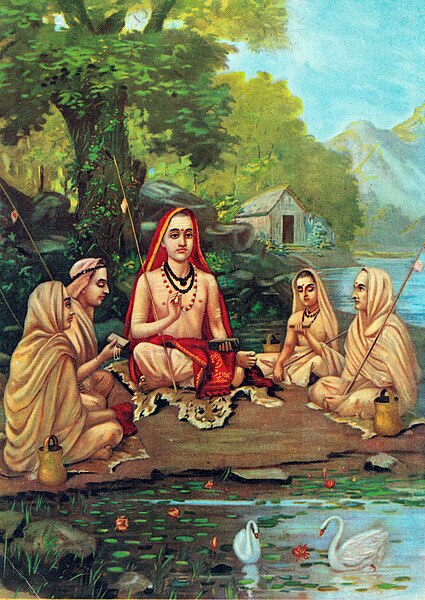In Indian religions and society, an acharya is a preceptor and expert instructor in matters such as religion, or any other subject. An acharya is a highly learned person with a title affixed to the names of learned subject. The designation has different meanings in Hinduism, Buddhism and secular contexts.
Image of Āchārya Kundakunda, author of Jain texts like Pancastikayasara, Niyamasara
Guru is a Sanskrit term for a "mentor, guide, expert, or master" of certain knowledge or field. In pan-Indian traditions, a guru is more than a teacher: traditionally, the guru is a reverential figure to the disciple or student, with the guru serving as a "counselor, who helps mold values, shares experiential knowledge as much as literal knowledge, an exemplar in life, an inspirational source and who helps in the spiritual evolution of a student". Whatever language it is written in, Judith Simmer-Brown says that a tantric spiritual text is often codified in an obscure twilight language so that it cannot be understood by anyone without the verbal explanation of a qualified teacher, the guru. A guru is also one's spiritual guide, who helps one to discover the same potentialities that the guru has already realized.
The traditional guru–disciple relationship. Watercolour, Punjab Hills, India, 1740.
Adi Shankara with Disciples, by Raja Ravi Varma (1904)
Guru teaching students in a gurukul




